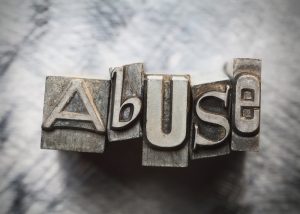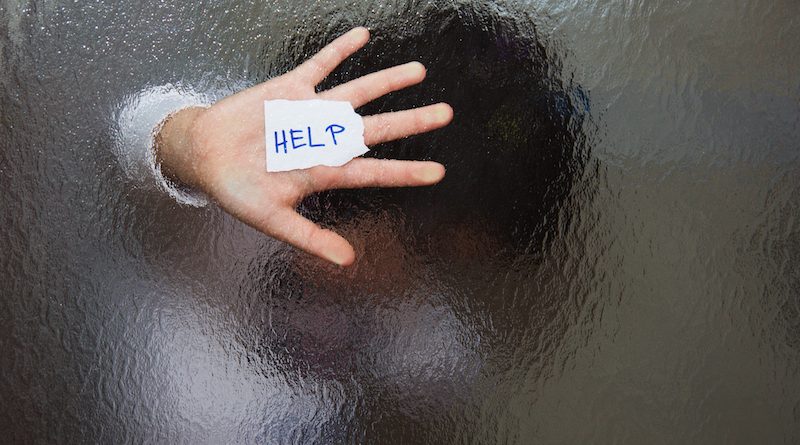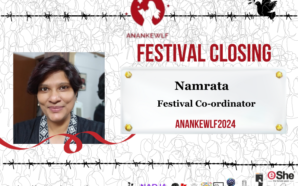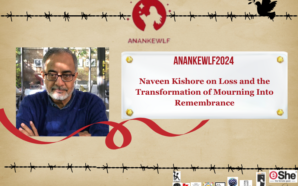“In an incident in Mingora (North Area, Valley of Swat) Pakistan, in May 2001, a woman was allegedly gunned down by her husband over a domestic dispute and then the husband escaped.” – [Gender Equality And Women Empowerment in Pakistan by Rashida Patel, published by Oxford University Press]
****
“Bibi Zadagai, wife of Amir Nawaz, stated in the [Police) First Information Report (FIR) that she had domestic differences with her husband and had gone to her father’s home. Her husband, along with his friend, entered her father’s house and opened indiscriminate fire. Her father died on the spot while she was injured but her husband and friend escaped.” – [Gender Equality And Women Empowerment in Pakistan by Rashida Patel, published by Oxford University Press]
****
“On the same day, a third case was reported where three armed men in Sukkur, (in the southern province of Sindh, Pakistan), barged into the house of Ghulam Haider Khoso and kidnapped his wife and two daughters. The kidnapping was said to be motivated by matrimonial dispute.” – [Gender Equality And Women Empowerment in Pakistan by Rashida Patel, published by Oxford University Press]
****
“In another incident in September 2001, Mohammad Ishaq had a quarrel with his wife over a petty issue. Ishaq attacked his wife with an axe.” – [Gender Equality And Women Empowerment in Pakistan by Rashida Patel, published by Oxford University Press]
****
In 2015, in the North Western province of Pakistan, Khyber Pakhtunkhawa (KPK), a brother killed his sister because she wanted to enroll in a university. – Ananke research
****
A similar case occurred in the same province where a man killed his fiancé studying in grade 10 because she wanted to go to college. – Ananke research
****
Pakistan is a land with deeply entrenched patriarchal mindset, espoused by illiteracy, giving birth to marginalization of women. Although gender equality and women participation in the country’s socio-economic spheres have always been big question marks, there have been campaigns including those led by the Women Action Forum (WAF), Shirkat Gah and Pakistan Women Lawyers Association (PAWLA) etc that triggered and forged women empowerment from post Independence era to its eventual demise during General Ziaul Haq’s military dictatorship in the 1980s.
The 1980s also saw the promulgation of laws and legislature that not only restricted women’s mobility in the socio-economic and political landscape of the country, but instigated a sterile life for women, intensifying the seizure of their basic human rights of financial and bodily autonomy; relegating them to the status of eternal subordination.
One of the most controversial legislatures passed in the history of Pakistan is the Hadood Ordinance in 1979. It was an “innovative experiment, merging Pakistan Penal Code offences based on Common Law Jurisprudence and criminal procedure with Hadood Laws based on Hanafi jurisprudence.”
In addition to this, women were and even now are vilified by highly prejudicial communal and Jirga laws.
 According to an article published in Pakistan’s daily, Dawn: “This law (Hadood Ordinance) was considered intrinsically misogynistic since its application resulted in women being convicted of adultery if they reported a case of rape, as their report was treated as a confession. Furthermore, in addition to other problems created by these laws, their judicial application also made it easier to get away with crimes against women such as honor killings and general degradation and humiliation of women in society.”
According to an article published in Pakistan’s daily, Dawn: “This law (Hadood Ordinance) was considered intrinsically misogynistic since its application resulted in women being convicted of adultery if they reported a case of rape, as their report was treated as a confession. Furthermore, in addition to other problems created by these laws, their judicial application also made it easier to get away with crimes against women such as honor killings and general degradation and humiliation of women in society.”
According to the book ‘Women of Pakistan: Two Steps Forward, One Step Back?’ authors Khawar Mumtaz and Farida Shaheed comment: “In May 1982, the government launched a campaign against obscenity and pornography. While there is no doubt that the problem of obscenity is valid in itself, the issue as defined by the government seemed to equate women per se with obscenity. As such the government’s campaign was viewed by Women Action Forum (WAF) (an initiative spearheading women struggles in the 1980 founded by the authors of the quoted book) as just an attempt to reduce women’s visibility in public.”
They further remarked: “Newspapers held debates on modesty and obscenity. Women were generally regarded as synonymous with obscenity, corruption and immorality. If women were harassed, killed, raped on the streets or at home(s), it was because women had provoked these attacks by their speech, action or just their very presence.”
Statistics show about 70 to 90 percent of women in Pakistan fall prey to one or more kinds of gender-based violence. Largely considered a private matter between husband and wife, domestic violence comes in many shapes and forms from verbal, psychological and physical abuse. Acid attack, stove burns, wife beating are just a few brutalities Pakistani women have been consistently subjected to not only in rural areas, but also in urban communities. Sadly, response from the government, security forces and political community has been dismal.
In her book Gender Equality And Women Empowerment in Pakistan, published by Oxford University Press, Rashida Patel writes: “The response of the police in our country to domestic violence is deplorable. Instead of working effectively to eliminate violence against women, they put obstacles in the way of victim’s right to justice. Corruption and gender bias dominate investigation and prosecution of the perpetrators of violence against women. Many police personnel and law enforcers do not consider wife beating a crime or even wrong.”
According to a paper titled Violence against Women in Pakistan: A Framework for Analysis co-written by Parveen Azam Ali and Maria Irma Bustamante Gavino, published by the Journal of Pakistan Medical Association: “Some common types [of violence] include honor killing, spousal abuse including marital rape, acid attacks and being burned by family members. Spousal abuse is rarely considered a crime socially unless it takes an extreme form of murder or attempted murder which could range from driving a woman to suicide or engineering an accident (frequently the bursting of a kitchen stove).”
It is not untrue to claim that illiteracy and poverty are some of the main causes of marginalization of women, abuse and gender segregation. Patriarchal societies thrive on gender games and power play.
BLUE VEINS: GALVANIZING WOMEN POWER
Working to alleviate women suppression is one entity that is striving to create gender equality in one of the most rigidly patriarchal societies in Pakistan. Blue Veins is an entity based in the Northern Province of Pakistan – Khyber Pakhtunkhuwa, which is essentially committed to build, strengthen and galvanize women’s collective power for a just and sustainable world – for all.
Talking to Ananke about women empowerment, Blue Veins’ Qamar Naseem, a vocal advocate of women cause, explains: “Here at Blue Veins, we truly believe that economic emancipation plays a critical role in empowering women. There are many factors that contribute to women’s disempowerment starting with patriarchal system, women’s dependence on male members of the family, illiteracy, no access or control over their personal or familial finances and most importantly lack of bodily autonomy. There are many women who are economically independent; but are unable to practice their rights and therefore their fates are more or less the same as those who are economically challenged.”
It is not untrue to claim that illiteracy and poverty are some of the main causes of marginalization of women, abuse and gender segregation. Patriarchal societies thrive on gender games and power play.
Elaborating, he said: “It is so important to include men in this conversation of empowering women. Women will continue to be victimized until men are on board. We cannot just raise awareness among women without the participation of men. In fact, we think we might inadvertently be putting them [women) in harms way by doing so. Blue Veins have outreach programs for men as well that as a consequence enables women to have a conducive environment where they can practice their rights properly. The need of the hour is also to educate men and boys.”
Although men do play a pivotal role in the elimination of gender-based violence, Qamar opines even the Pakistani woman – especially those living in rigid communities – are not gender sensitive.
“There are a number of women who do not believe in women empowerment. They have been led to believe domestic violence, women DISempowerment is a part of nature and culture. That theirs is a subordinate role, which they have to embrace. We had a workshop in Swat and came across this lady who was educated and had a job. During our conversation, she said if her husband did not beat her or was not suspicious about her, how would she see that he actually cared about her. So just to make her realize, we questioned her love by asking her if she would do the same just to prove her affection,” comments Qamar.
Indeed there is a mindset at play as far the Pakistani man is concerned, but its impact on the woman is greater still. Research shows how women are conditioned to behave a certain way, in addition to being influenced by communal, and many a times, obsolete traditions.
“Whenever we ask women why they choose to live with a violent partner or in fact suffer quietly and do not raise voice, their immediate response is dependence on their husbands and families as they are either illiterate, are unable to make it on their own and/or have no place to go,” reveals Qamar.
Adding, he says: “We have seen women who fall victims to domestic violence are especially those who are economically dependent on their husbands/partners and thus choose to remain in a violent relationship. These are women who can take better care of their children. This is the main reason why we urge women in the community that we work in to be educated and learn a skill.”
Speaking up and raising a voice against violence has always been more of a taboo not only in the eastern part of the world; but also in the West. Unfortunately, raising voice specifically by the victim when she bravely decides to take a stand has its own grievous ramifications that include anything from digital trolling, abuse and harassment to even life and death situations.
“It is so important to encourage women to speak up, know about their rights and make them see that domestic violence is most certainly not an integral part of their lives. These women assume that violence is part of their married life and is therefore not worthy of discussion. And that is what we try to do through our Blue Veins’ workshops: confidence building, leadership, giving women exposure. We also work with men and boys, raising their awareness about this issue. Moreover, we are also engaging with violent men especially in Peshawar and Nowshera (cities in Khyber Pakhtunkhuwa – considered by many as one of the most rigidly patriarchal societies in Pakistan). There are outreach programs, and we try to mediate situation and assess them. The society we live in is hegemonically male, which victimizes not only women but men also fall prey to it. We go to them and teach them with a different approach. We establish a dialogue with these men, urging them not to be the oppressors they are in reality, to give women their due rights and shun their negative image. Our mission is to make them realize how this violent approach doesn’t work and cause a decay in the family system. We try to help men realize the repercussions triggered by their acts of violence.”
Recently, the Pakistani government drew a positive response from secular groups and wrathful sentiments from clerics by passing the Punjab Protection of Women Against Violence Act of 2016. According to Pakistani daily, Dawn: “In a nutshell, it contains the following protection mechanisms: a district protection committee, a helpline, women protection officers, protection centers and shelter homes, various remedies of orders of protection, residence and monetary support for victims. These are all commendable. More importantly, it signifies lawmakers’ alertness to the fact that most laws enacted to enhance women’s rights and their protection are not effectively implemented.”
Talking about the negative response of leaders belonging to religious sects, Resident Director, Aurat [Woman] Foundation, writer and activist, Mahnaz Rehman writes: “It has been proven yet again that by being so negatively vocal about the bill, the local clergy is inherently against a progressive Pakistan, which they have always been and in fact are trying to create barriers against sustainable development of the country.”
Although it is a positive step in the right direction, there is much to be done at the grassroots level. Devising policy and passing laws that benefit society is only the beginning, development of nations can only become a possibility if change first trickles down from top to bottom and then vice versa. The need of the hour is for the government, citizens AND civil society to work and collaborate together bringing about change that is transparent, long term and sustainable. Yes, there is a very long road ahead but we have to start somewhere!











